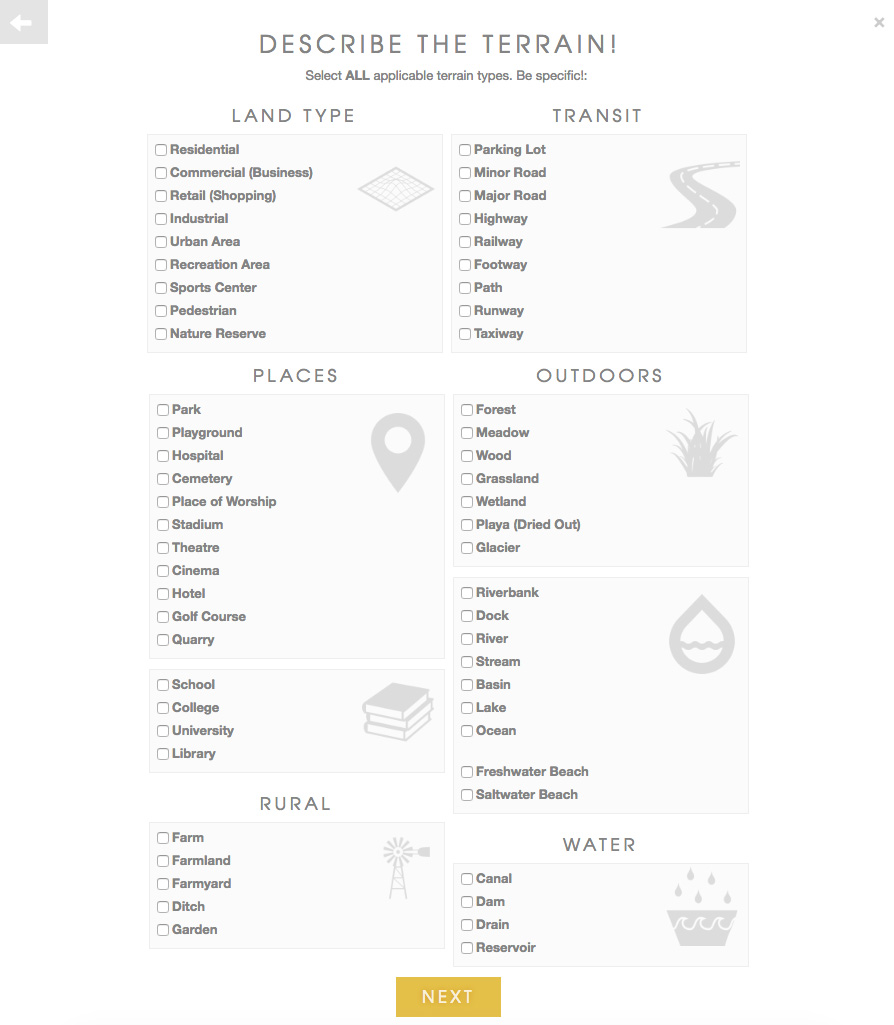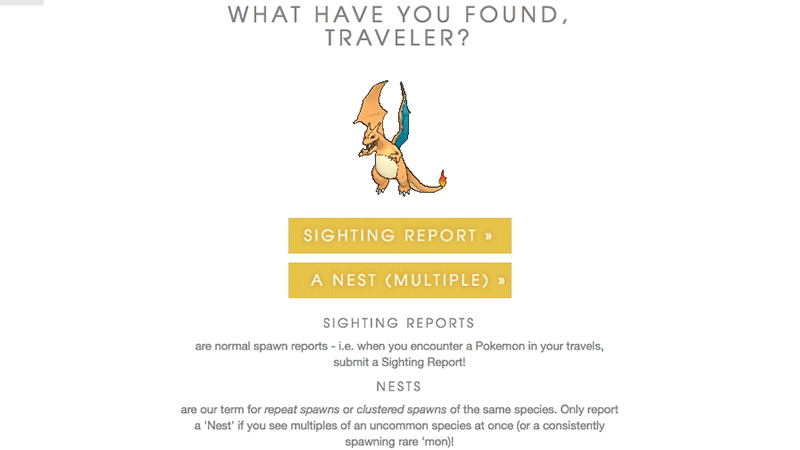I’m in the back of a Gregory’s Coffee in New York’s midtown across from Dronpes and flanked by Moots7, who are careful to tell me as little about themselves as possible. From what I can gather Moots works in finance and comes from rural Colorado, while Dronpes is a developer at a tech company, hard-working with a cautious, controlling streak. Both are tall, stubbly white guys in their late 20s — the right age to have fond memories of the first generation Pokemon games. Six months ago they embarked on creating The Silph Road, a project that has become the Pokemon GO player’s bible.
Image: The Silph Road YouTube channel, Moots7 (left) and dronpes (right)
Their original plan was to make an in-person trading network, so people could swap monsters with one another. But when Niantic withheld in-game trading on Pokemon GO’s release, “the executives” (as they call themselves) shifted the group’s focus to research, starting with beta testers in New Zealand, Japan and elsewhere.
On “the road”, players can find and log robust information about every species of monster in the game. Level, location, move-set, proximity to bodies of water, moon phase and cloud cover are logged along with more than 70 other data points and fed into Silph’s global Pokedex, where they become another layer of terrain info on top of Google Maps.
The result is a cheat sheet for Pokemon GO: Which moves cause the most damage in the fastest time, which species are preternaturally stronger, how high the hidden stat bonuses are estimated to be for a given ‘mon. Though Moots claims that “the true excitement of the game is the unknown”, presently Silph’s data rides a very thin line between removing undue frustration from a mostly-broken game and eliminating all sense of discovery.

While their research is available to all, sign-ups of “travellers” — those who can log data and sightings — are limited for both personal and practical reasons. Throngs of visitors, largely from Japan, are putting Silph’s servers under tremendous strain, and travellers are regularly maxing out Silph’s Google Maps API requests. Their dedicated subreddit recently broke 100,000 subscribers. Though that pales in comparison to the wildly popular r/pokemongo, in some ways that’s preferred — there’s no way to “control the culture meaningfully” on a group of that size, as Dronpes puts it. He opens his laptop periodically to release more traveller invite codes to the subreddit.
Launched on Monday, Silph’s newest initiative is to have travellers log the location of “nests”, spots where a certain species of monster is guaranteed to appear, and sometimes several instances of that species (for example, Charmanders gather at New York’s Museum of Natural History).
All that is just a prelude to the launch of their webapp, which they only discuss in vague terms, but it’s purpose is to take advantage of the chance personal encounters Pokemon GO encourages. Silph wants to translate their online community into codified physical space. “In your neighbourhood, everybody’s going to be grouped together automatically via the webapp and it will allow you to say[…]’Hey everybody on Instinct, I want to take down these two gyms,’” Moots explains excitedly, “It’s a way of allowing the community to reach out to each other without having to use real-world knowledge of each other.”
The introduction of in-person meetups during gameplay is relatively new and largely uncharted, so Silph will have zero tolerance for troublemakers. “If you make comments and harass people, we’ll just kick you out,” Dronpes laughs a bit. “That makes me sad because we try to keep things friendly on the road but we just don’t have the bandwidth to raise screwballs and teach them to be real people.”

Dronpes is careful to describe their data collection and distribution as purely whitehat, though admits that members of the team were involved in decrypting the game prior to joining. And much of the global Pokedex information for determining the strongest monsters — the damage per second of specific moves, the base stats for species and so on — is culled from the work of decidedly nefarious sources, one of which Dronpes descripes as “a hacking circle”. Those data points logged by travellers weren’t arrived at randomly either: They’re informed by the same discoveries the decrypting team made. “We are obviously are very aware of the capabilities and the vulnerabilities in the app right now,” Dronpes says.
He’s happy to decry scripts that fully break the game or exploits that spoof a player’s GPS location, but admits to using the monster-locating tool PokeVision, which exists in clear violation of Niantic’s terms of use. Silph represents a grey area, and Dronpes defends it through deflection — there’s more egregious work being done elsewhere; if they didn’t build it, someone else would — before ultimately landing on the obvious: Niantic’s game is in a sorry state. “Our dream is that Niantic continues to evolve Pokemon GO to the point where there’s a huge competitive scene, it’s well-balanced and you can get really good or you can suck,” he says. “To the level where Silph Road-style guides are there for if you really want to get into the game.” Until that happens, the Silph Road is massively-crowdsourced cheat code, but it’s a cheat code with aspirations of being a legitimate guidebook.
The Silph Road exists largely in contradiction to itself: An ethical resource built on the work of blackhat developers; an initiative to create a physical community by founders who want near-total anonymity; a project experiencing meteoric growth while trying to maintain control and exclusivity. Moots, Dronpes and their thousands of dedicated volunteers have clearly found a sustaining audience and created an invaluable resource for anyone playing Pokemon GO with any degree of seriousness. The project’s future will ultimately be authored by Niantic itself, though not entirely: That their data proves how unbalanced the game currently is may be the very thing that spurs changes to gameplay, and a real-world community might provide the staying power it needs now that nostalgia and novelty have crested.
